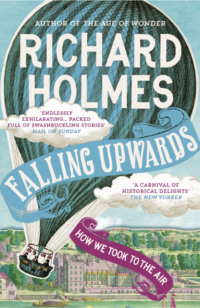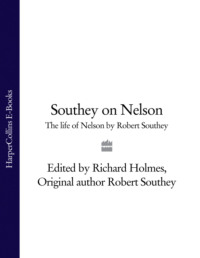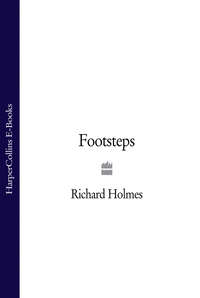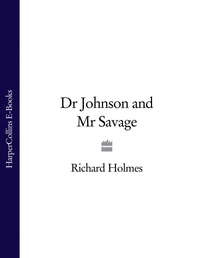
Полная версия
Coleridge: Darker Reflections
These moments of dreamy pleasure and sudden despondency seemed to alternate at San Antonio as Coleridge hovered in a kind of weightless trance in his Maltese exile, frantically busy and yet curiously passive, floating and yet marooned. There are no true rivers anywhere on the island, only wells and thin water-courses, but the image of a dried-up stream – perhaps inspired by the hesitant plashing of the Eagle Fountain (1623) in the gardens – produced one of Coleridge’s most memorable images of that summer. He is no longer a bird, but a fish. “STC – The Fish gasps on the glittering mud, the mud of this once full stream, now only moist enough to be glittering mud. The tide will flow back, time enough to lift me up with straws & withered sticks and bear me down into the ocean. O me! that being what I have been I should be what I am!”145
The heat began to increase in July, and at 4 a.m. one morning there was an earthquake, which seemed to him like the premonition of some great battle. Typically, Coleridge was awake, and saw his old friend the moon above the Garrison Battery, almost at the full, but very strange with a “reddish smoke-colour” like a god of war.146 With the heat came increasing noise, or at least sensitivity to it and Coleridge was regularly woken in the Treasury by trumpets of the “accursed Reveille” in the square below and the “malignant torture” of the parade drums, which attacked his head “like a party of yelling drinking North American Indians attacking a Crazy Fort with a tired Garrison”.147
The Public Secretary’s temper frayed even with the ordinary Maltese, whose carts thundered down the steps of Valletta, whose children screamed (“horrid fiendliness – for fun!”), and whose boatmen howled. “But it goes through everything – their Street-Cries, their Priests, their Advocates: their very Pigs yell rather than squeak.” The dogs howled all night, and the “Cats in their amours” were like imps in hell. “He who has only heard caterwauling on English Roofs can have no idea of a cat-serenade in Malta.”
This note of comic exasperation suggests perhaps the real, underlying stresses of Coleridge’s daily work, and the typically drawn state of bureaucratic nerves in wartime. It led to various frictions in the Treasury. Mr Underwood, in particular, was irritated beyond measure by Coleridge’s ceaseless literary talk and maddening tendency to produce exquisite Italian sonnets from his pile of official paper, innocently repeating the same translation to every visitor, as something “he had just thrown off”.148
The heat also produced lugubrious stories, such as the one about the consul’s clerk in Tripoli, who got out of bed in the middle of the night to drink water, remembered with horror the danger of scorpions when walking in the dark with bare feet, “went back & slipped his feet into his Shoes, in one of which a Scorpion was, & bit him mortally”. Coleridge thought this narrative so neat, that it was actually an “invention”.149
Relations nevertheless remained generally good. Vittori Barzoni discussed each edition of the Malta Gazette with the Public Secretary, and later described Coleridge as an outstanding personality with whom he had “the closest intimacy”.150 Captain Decatur of the US navy relished his company, and when he was about to sail to a new Mediterranean station, sent from his ship outside Valletta harbour a warm note of farewell which also captures the urgency of these months: “I am extremely near the shore, & have not time to be lengthy, & have only to beg you will believe me since whom [sic] I assure there is no man’s good opinion whom I would set a higher value on. PS. Should you come out, make a sign & I shall heave to immediately.”151
By the end of July 1805, Coleridge was able to send his wife a draft for £110 from his accumulated salary, which with the Wedgwood annuity put Sara in the best financial position she had been in for some time. The threatened loss of the family home at Greta Hall had also dissolved, since the prospective buyer had withdrawn.
Coleridge’s actual return to England remained as problematic as ever, though he tried to appear more decisive than he felt. “I have been hoping and expecting to get away from England for 5 months past, and Mr Chapman not arriving, Sir Alexander’s Importunities have always overpowered me, tho my gloom has increased at each disappointment. I am determined however to go in less than a month.”152 By contrast he emphasized the importance of his work in the wartime administration. “My office, as Public Secretary, the next civil dignity to the Governor, is at times a very busy one…I often subscribe my name 150 times a day…& administer half as many Oaths, besides which I have the public memorials to write, & worse than all constant matters of Arbitration.” Sir Alexander, despite his importunities, is still described as “indeed exceedingly kind to me”. From his point of view, of course, Coleridge was sticking honourably to his post.
In August the heat went up to 88° in the shade and 140° in full sunlight. The buildings were full of sweating men and splitting furniture, with cracking boards and exploding tea-chests. “Captain Lamb’s tea chest went off, as loud as a Pistol…the Cooper’s shop (where there is at present a large quantity of Mahogany & English oak) presents to the Ear a successive Let-off of Fireworks.” Up at San Antonio all the floorboards in Sir Alexander’s beautiful new dining-room split, one by one, with startling cracks, as they sat at dinner.
Curiously the heat suited Coleridge, and once again he found himself wishing that Asra, and all the Wordsworths and his children, were with him. “I have the prickly Heat on my Body, but without…annoying me, & I am better than I have been in a long time. In short, if my mind & heart were at ease, if my children + SH + WDMW were with me, & they were well, I should be more than well. I should luxuriate, like a Negro, in the Oven of the Shade and the Blaze of the Sunshine.”153
Assuming that Coleridge had already left Malta, Wordsworth in fact was expecting Coleridge to appear at any moment in London, probably at Daniel Stuart’s Courier offices. He scotched a “rumour” that the appointment as Public Secretary was permanent, and was making a first tentative plan for them all to reunite at Sir George Beaumont’s new estate in Leicestershire. He had finished the Prelude and was anxious for Coleridge’s opinion.154
But as August progressed a new mood of despondency descended on Coleridge. He walked at 5 a.m. on the roof of San Antonio, “deeply depressed”, and gazed out at the pitiless beauty of the sea, “the Horizon dusky crimson” and the many boats swaying at anchor. He watched the wild dogs “reviving in the moonlight, & playing & gamboling in flocks”. Boils returned on his arm, and he drank “Castor oil in Gin & Water”, and had an “epileptic” return of his sexual dreams – “alas! alas! the consequences – stimulos”.155
On 21 August he wrote to Mrs Coleridge, and this time the tone of exhaustion and disenchantment is unmistakable. “Malta, alas! it is a barren Rock: the Sky, the Sea, the Bays, the buildings are all beautiful. But no rivers, no brooks, no hedges, no green fields, almost no trees, & the few that are unlovely.” He now felt it would have been better if he had remained “independent”, and continued with his own writing. His position seemed ridiculous rather than important: “for the living in a huge palace all to myself, like a mouse in a Cathedral on a Fair on Market day, and the being hailed ‘Most Illustrious Lord, the Public Secretary’ are no pleasures to me who have no ambition.”
Sir Alexander had always “contrived, in one way or another” to prevent his return, but now it was assured for September. He had the Governor’s “solemn promise” that as soon as he had completed a series of public Letters “& examined into the Law-forms of the Island”, he would be sent home on a convoy via Naples. Sir Alexander would also use his best interest with Hugh Elliott, the British Ambassador in Naples, to send him back officially with dispatches, which would “frank him home” free of charge. Nevertheless he would retain a further £120 of his salary in case he had to travel overland.
Even so the dream of some permanent post in the Mediterranean was not entirely abandoned. Now the moment of departure really approached, Coleridge began wondering if he might not after all return and settle permanently. The possibilities held forth by the Governor still promised the enchantments of the South. “Sir Alexander Ball’s Kindness & Confidence in me is unlimited. He told a Gentleman a few days ago, that were he a man of Fortune he would gladly give me £500 a year to dine with him twice a week for the mere advantage which he received from my Conversation. And for a long time past he has been offering me different places to induce me to return. He would give me a handsome House, Garden, Country House, & a place of £600 a year certain. I thank him cordially – but neither accept nor refuse.” Even more galling for Mrs Coleridge, perhaps, was an airy mention of “a fine Opening in America” that he had lately received – probably through Captain Decatur. “I was much inclined to accept; but my knowledge of Wordsworth’s aversion to America stood in my way.”156
It would be easy to dismiss much of this as Coleridge’s optimistic fantasy of some perfect state of exile, and perhaps even as a provocation or warning to his wife. But Sir Alexander did in fact recommend Coleridge to the War Office for just such a posting, which would have provided very much the situation and the salary he describes. In a letter dated 18 September 1805, he wrote to Granville Penn, chief assistant to the Secretary of State at Downing Street. In it he suggested that Coleridge combine the largely formal post of Superintendent of Quarantine (as applied to ships), with the much more interesting job of turning the Malta Gazette into an influential wartime newspaper to be distributed across the Mediterranean. The terms of this letter, despite its measured official tones, were a remarkable endorsement of Coleridge’s unlikely success as a wartime bureaucrat. It also suggests Coleridge’s continuing power to throw his spell over even the most rigorous executive mind.
The Governor first mentioned Coleridge’s “literary Talents”, political principles and moral character, and confirmed that he had fulfilled the Public Secretaryship “seven months to my satisfaction”. He could also provide “the fullest information” on the Malta government to the Foreign Office. He then added: “As the climate agrees with Mr Coleridge he would accept Mr Eton’s situation [as Superintendent] and allow him three hundred Pound a year, and as the business of the office would occupy but little of his time he could assist Mr Barzoni in making the Malta Gazette a powerful political engine besides rendering other services to this Government.” He asked Penn to approach the head of department, persuaded “of deriving great public good from his appointment”.157 A similar note of private recommendation went to Ball’s brother back in England. As Coleridge already possessed the recommendation to Hugh Elliot of the previous autumn, praising his imagination, judgement, and goodness of heart, he could feel pleasingly well documented by officialdom, as he prepared to leave.
When Mr Chapman finally arrived in Valletta on 9 September, Coleridge prepared to leave, depositing many of his books and papers with John Stoddart to be forwarded by convoy. None of these would he see again. There is no record of his farewells, though he noted “Tears & misery at the Thought of not returning” on one occasion after a talk with Captain Pasley. He prepared himself by reading Italian poets of the fifteenth century, and noted their “pleasing” confusion of heathen and Christian mythology. The layerings of classical myth, of Renaissance Latin upon Greek, as he hoped to study in Italy this autumn, also produced a characteristic word-coinage. It required “a strong imagination as well as an accurate psycho-analytical understanding” to conceive “the passion of those Times for Jupiter, Apollo etc.; & the nature of the Faith (for a Faith it was…)”.158 The bureaucrat was to become the independent, wandering scholar once more.
15
Coleridge finally left Valletta a little after midnight on 4 September 1805, making a night crossing to Sicily under a shower of shooting stars. He could not make up his mind to sleep and, in an expressive gesture, left it to the stars to decide. “I was standing gazing at the starry Heaven, and said, I will go to bed at the next star that shoots.” He knew that this tiny moment symbolized much about his long Mediterranean sojourn, and the self-knowledge that he had gained. “Observe this in counting fixed numbers previous to doing anything etc. etc. & deduce from man’s own unconscious acknowledgement man’s dependence on some thing out of him, on something apparently & believedly subject to regular and certain Laws other than his own Will & Reason.”159
Coleridge’s wanderings now became so uncertain that they are barely traceable until he arrived unexpectedly in Rome on 31 December, some three months later. He wrote no letters, and kept the barest record of dates and places in his Notebooks. On 26 September he was at Syracuse with the Leckies, and he visited Cecilia Bertozzi for the last time. On 4 October he was at Messina, and made the “melancholy observation” that he was growing fat. Perhaps Cecilia had pointed it out to him as a gesture of farewell.
Sometime after 15 October he abandoned the plan to sail to Trieste and return overland, perhaps on hearing news of the defeat, on 20 October, of the Austrian army at the Ulm. By mid-November he had sailed to Naples, probably on a troop ship belonging to General Craig’s convoy, and dined with Hugh Elliott at the British Embassy.
All the news then was of the Battle of Trafalgar, which had been fought on 21 October (Coleridge’s 33rd birthday), achieving a great strategic victory. But when news of Nelson’s death reached Naples, Coleridge walked through the streets and found many Englishmen openly in tears, coming up to him to shake hands and completely overcome with an emotion which he instinctively shared.160 Ball had received a final dispatch from Nelson at Valletta four days before the engagement, describing his daring battle plan to cut through the centre of the huge French squadron in a double line astern. Nelson told Ball that his young officers had christened it “the Nelson touch”, and added with a characteristic insouciance, “I hope it is touch and taken!” The only record of this dispatch remained unpublished in Ball’s private papers, but similar stories circulated widely, the kind of thing that made all Nelson’s officers adore him and filled Coleridge with admiration.161
There was now much confusion in Naples, and Coleridge was not after all “franked home” with official papers by Elliot. So instead he made a leisurely expedition into Calabria with Captain Pasley. He visited Virgil’s tomb and contemplated Vesuvius. In late December he was offered a carriage-trip to Rome, for a fortnight as he supposed, and leaving his boxes of books and papers with an embassy friend, set out on Christmas Day. Almost immediately on his arrival, he heard from Mr Jackson, the English consul, of the battle of Austerlitz and the French armies sweeping southwards into Italy. “To stay, or not to stay?” he noted calmly. He decided to stay, and once again found himself marooned by circumstances. He made no attempt to continue his journey until the spring, and still he wrote no letters home.
The absence of news frightened the Wordsworths and infuriated Southey. Dorothy wrote to Lady Beaumont on Christmas Day: “Poor Coleridge was with us two years ago at this time…We hear no further tidings of him, and I cannot help being very uneasy and anxious: though without any evil, many causes might delay him; yet it is a long time since he left Malta. The weather is dreadful for a sea voyage. O my dear friend, what a fearful thing a windy night is now at our house! I am too often haunted with dreadful images of Shipwrecks and the Sea when I am in bed and hear a stormy wind, and now that we are thinking so much of Coleridge it is worse than ever.”162
The truth seems to be that Coleridge, with plenty of money and several letters of recommendation and credit, was embarked on a leisurely tour of the Roman sites and galleries.* One long note on the Spanish Steps suggests that he was staying in the English quarter beneath the Trinita dei Monti (where Keats would die of tuberculosis sixteen years later). Rather than face the prospect of England, he had decided to risk capture by the French armies who were steadily descending through northern Italy. While most English visitors fled back to Naples, and General Craig’s expedition sailed ignominiously back to Sicily, Coleridge was quietly making notes on the Last Judgement in the Sistine Chapel. “Ideal = the subtle hieroglyphical felt-by-all, though not without abstruse and difficult analysis detected & understood…Take as an instance of the true Ideal Michel Angelo’s despairing Woman at the bottom of the Last Judgement.”163
Captain Pasley, who had also pulled back with his regiment to Sicily, wrote to a fellow-officer, “I was happy to meet our friend Coleridge at Naples, certainly few men are more interesting. He is now at Rome, where he stayed. Not withstanding advices of the English Resident there [Jackson] to retire, I hope the poet’s eye in a fine frenzy rolling may never contemplate the roof of a French prison: but from his natural indolence I cannot be too sanguine of his taking himself off in time.”164 Coleridge’s book box was also shipped back, and eventually finished up where it had started, in Valletta with Stoddart. Coleridge was alone with his shirts, his guidebooks, and two remaining notebooks, in the Eternal City.
It seems to have suited him very well. Within a matter of days he had introduced himself with great success into the circle of two notable expatriate groups, one literary and the other painterly, who frequented the artistic quarter round the Spanish Steps. The first was a group of German writers who gathered at the splendid residence of Wilhelm von Humboldt, directly overlooking the Trinita dei Monti. Humboldt was a distinguished young diplomat in his mid-thirties, brother of the famous South American traveller. He had been appointed Prussian Minister to the Court of Pius VII, and held a salon with many German university visitors where Coleridge, an honorary graduate of Göttingen, immediately felt in his element.
Humboldt had formed a life-long friendship with Schiller at Jena University, and developed advanced theories of linguistics and philology, publishing learned papers on Basque and Javanese dialects. His notion of a “language world” was calculated to appeal to Coleridge, and his famous binary concept of “the Dual” (as opposed to two singulars and/or a plural) was much in Coleridge’s metaphysical style. Humboldt later championed ideals of “academic freedom”, and helped to found Berlin University. He was a patron of both arts and sciences, and among his protégés at the Trinita dei Monti was the brilliant young Romantic poet and critic, Johann Ludwig Tieck.
Coleridge formed an animated friendship with Tieck, discussing Goethe and A. W. Schlegel, and the latest philosophical work of Schelling (who had also been a professor at Jena) which they compared with that of the mystic Jacob Boehme. It was probably now that Coleridge first came to grips with Schelling’s System of Transcendental Idealism (1800), which rekindled his ambition to write his own general philosophical treatise at some later date. Tieck’s sister, Sophie Bernhardi, later wrote to Schlegel of the remarkable Englishman at Rome, who knew so much current German literature and who admired Schlegel’s own work on Shakespeare “unbelievably so”. Coleridge in turn admired Tieck, translated one of his poems,165 greatly valued his hospitality and “kindness”, and met him again years later in London with fond recollections of their Roman hours together.166
But Coleridge’s real intimacies were formed in the more bohemian circle of the painters. At the Cafe Greco on Strada de’ Condotti he fell in with a group that included George Wallis, Thomas Russell, and the 27-year-old American artist Washington Allston. Russell was an art student from Exeter, and Wallis a Scottish landscape painter travelling through Italy with his family, including a ten-year-old son grandly named Trajan Wallis, who delighted Coleridge with his precociousness. But it was Washington Allston, a dreamy young man, elegant and aristocratic, with wild black hair framing a pale abstracted face, to whom he most instinctively warmed.
Allston had grown up on a cotton plantation in South Carolina, and had the slow finesse of a Southern gentleman. Moneyed and leisurely, he had attended Harvard and gone on to study art in Paris and at the Royal Academy in London, where he knew Fuseli and Benjamin West. Melancholy and amusing, he said he had received his imaginative education through the stories of the black plantation workers, tales of “barbaric magic and superstition…ghosts and goblins…myths and legends to startle and alarm”.167 He had a “tendency towards the marvellous” and loved to stay up all night talking. A friend said Allston could never paint the reflections of dawn sunlight on water, because he had never seen a sunrise.
Naturally, Allston espoused the Sublime school of painting, with its brooding landscapes and dramatic subjects. He preferred Gothic to Greek, and his beau-ideal was Titian and Veronese with their rich colours and mysterious allegories. He had painted scenes from Schiller’s plays, Mrs Radcliffe’s novels, Milton’s Paradise Lost, and the Bible. The latter characteristically included “St Peter When He Heard the Cock Crow”. Leaving a fiancée behind in Boston, he had come to Rome in 1805, renting a studio by the Borghese Gardens, and a rustic summer lodging up in the Roman hills at Olevano.
One of the first things Coleridge ever heard him say was that a fellow-painter was too realistic and down to earth. “He works too much with the Pipe in his mouth – looks too much at the particular Thing, instead of overlooking – ubersehen.” Allston valued the ideal above all else, and Nathaniel Hawthorne would later put him into a short story to illustrate this quality pursued to excess, “The Artist of the Beautiful”. Like Coleridge, he had trouble finishing his work, and he was to spend over twenty-five years on his last canvas, a monumental picture of “Belshazzar’s Feast”, which was unfinished at his death.
He had just completed a large mythological canvas, “Diana and Her Nymphs in the Chase”, which appears to be much influenced by Claude Lorraine. Coleridge wrote a minute prose description of it, treating it in a way that delighted Allston, as a real landscape through which he could wander at will, slipping on the perilous bridge of moss-covered tree-trunk over a chasm – “take care, for heaven’s sake” – and watching the graceful undulations of a huge umbrella-pine “exhaling” movement, “for it rises indeed, even as smoke in calm weather”.168
Allston and Coleridge were soon walking all over Rome together – to the Forum, the Castello San Angelo, the Borghese Gardens – talking and comparing notes. In between the Sublime, Coleridge was careful to keep an eye on the grotesque, like the stallholder in the Roman market who twisted the necks of some two hundred goldfinches, one after another, leaving them fluttering and gasping in a box, “meantime chit-chatting with a neighbour stallman, throwing his Head about, and sometimes using the neck-twisting gesture in help of his Oratory”.169
Years later Allston would say that he owed more “intellectually” to Coleridge than to any other man in Italy. “He used to call Rome the silent city; but I never could think of it as such, while with him; for, meet him when or where I would, the fountain of his mind was never dry, but like the far-reaching aqueducts that once supplied this mistress of the world, its living streams seemed especially to flow for every classic ruin which we wandered. And when I recall some of our walks under the pines of the Villa Borghese, I am almost tempted to dream that I once listened to Plato, in the groves of the Academy.”170








